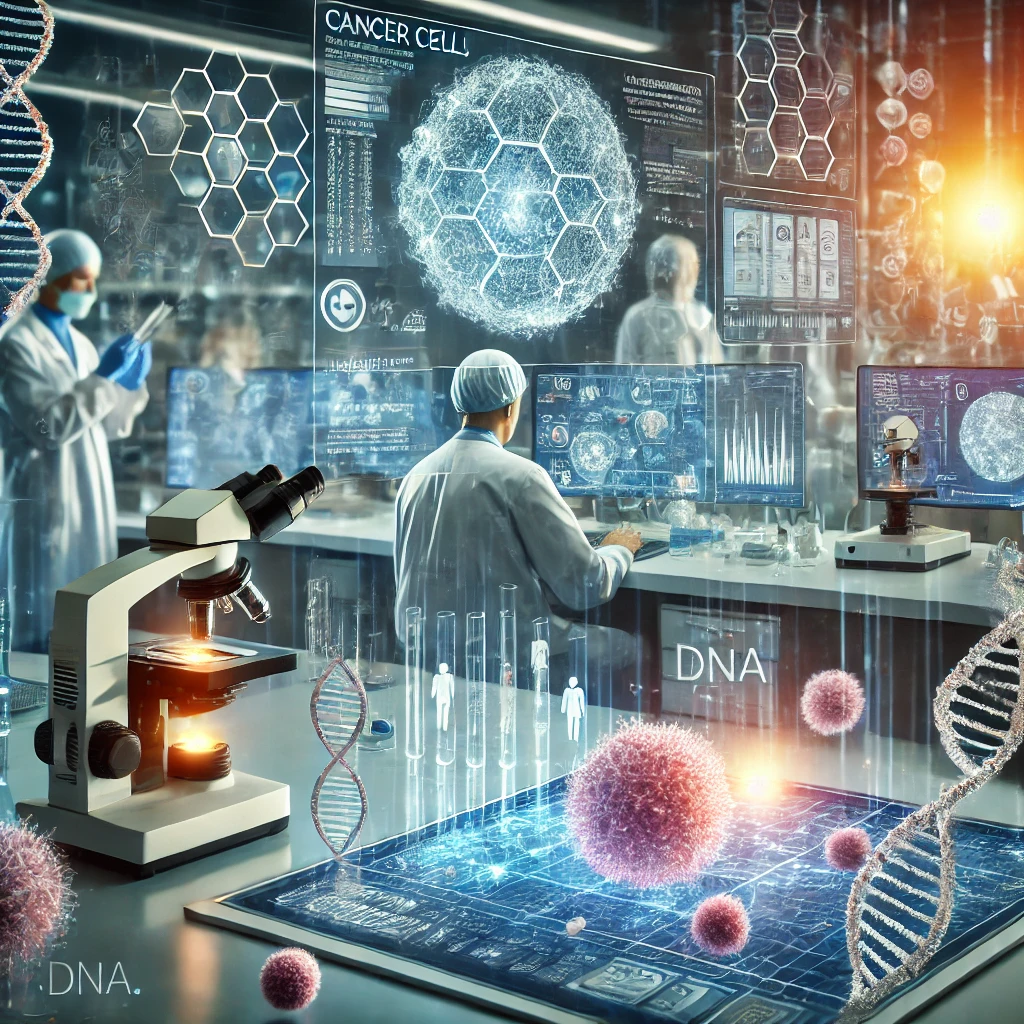
Innovations in Cancer Research: Exploring the ..
Nov 19 - 2024

By Dr. Julie Pratibha Singh, Scientific Advisor, Health29
A cancer diagnosis is life-changing, but recent innovations in cancer research are bringing new hope to patients worldwide. To explore some of the most promising breakthroughs and their implications for future treatments, we spoke with Dr. Manoj Kumar Sharma, Director Radiation oncology, Action Cancer hospital, Delhi a leading oncologist and researcher with years of experience in the field. Here, Dr. Manoj Kumar Sharma shares insights into the latest advancements, including personalized medicine, immunotherapy, liquid biopsy, and artificial intelligence, shedding light on what these mean for patients and their journey through cancer.
Personalized Medicine: A New Era in Cancer Treatment
The concept of personalized medicine has transformed the way oncologists approach cancer care. "In the past, cancer treatment was largely one-size-fits-all, with chemotherapy and radiation as the primary options," explains our expert. "Now, with the advent of genetic profiling and targeted therapy, we can tailor treatments to the unique genetic makeup of a patient’s tumor. This approach improves the chances of a successful outcome and significantly reduces the side effects that patients have to endure."
The molecular specialist elaborates on this shift: “By understanding the molecular characteristics of each tumor, we can select therapies that specifically target those markers. This not only enhances effectiveness but also spares healthy cells, which is a huge step forward in minimizing the harsh effects of cancer treatment.”
Immunotherapy: Harnessing the Body’s Defense Mechanism
Our expert points out that immunotherapy is one of the most promising developments in cancer research. "Immunotherapy works by helping the immune system recognize and destroy cancer cells," they explain. "This is revolutionary because the immune system can adapt and remember these cancer cells, potentially leading to long-term remission."
They highlight one such breakthrough, CAR T-cell therapy, which involves modifying a patient’s own immune cells to better recognize and attack cancer cells. “Initially developed for blood cancers like leukemia, CAR T-cell therapy is now being explored for solid tumors, opening up possibilities for treating cancers previously resistant to immunotherapy.”
The molecular specialist adds, “While immunotherapy is not a universal solution and doesn’t work for all cancers, it represents a new frontier. The next challenge for researchers is to make immunotherapy effective for more types of cancer and for a larger patient population.”
Liquid Biopsy: A Less Invasive Approach to Detection and Monitoring
The expert is excited about liquid biopsy, a technology that enables cancer detection and monitoring through blood samples rather than invasive tissue biopsies. "Liquid biopsy is particularly beneficial for early detection and monitoring cancer progression," explains the molecular specialist. "It allows us to track genetic mutations in real-time, providing valuable insights into how a patient’s cancer is evolving and responding to treatment."
The oncology expert believes that liquid biopsy has the potential to change cancer care fundamentally. "By offering a less invasive way to detect cancer at an early stage, we can start treatment sooner, improving outcomes. It also makes it easier to monitor patients over time, adjusting their treatment as needed."
Artificial Intelligence and Machine Learning in Cancer Diagnosis
Our molecular specialist discusses how artificial intelligence (AI) and machine learning are enhancing diagnostic accuracy. “AI algorithms are now being trained to detect cancer in radiology scans and pathology slides with remarkable precision. This technology helps doctors make more accurate diagnoses and identify subtleties that might be missed by the human eye.”
The oncology expert adds that AI is also being used to predict how patients will respond to different treatments. "Machine learning models can analyze data from past patients to help us make better treatment decisions. This is especially valuable for rare cancers, where treatment protocols are not well-established."
The Future of Cancer Research: Hope and Challenges
When asked about the future of cancer research, the oncology expert is optimistic. "The direction we’re headed in is extremely promising. The goal is to make cancer a manageable disease, one where patients have a higher quality of life and fewer long-term side effects."
The molecular specialist, while hopeful, notes the challenges ahead. “We’re making rapid progress, but there are still hurdles to overcome, especially in making these advanced treatments affordable and accessible to all patients. Research funding and healthcare accessibility are issues that need attention to ensure that these innovations benefit everyone, not just a select few.”
Conclusion: A Path Toward Better Outcomes and Enhanced Quality of Life
Cancer research continues to bring forward new hope, with innovations that not only improve survival rates but also aim to enhance patients’ quality of life during and after treatment. At Health29, we are committed to staying at the forefront of these advancements, connecting our patients with the latest information and resources for comprehensive care.
By integrating personalized treatment plans, immunotherapy, liquid biopsy, and AI-driven diagnostics, we are closer than ever to changing the face of cancer care. As we look to the future, our mission remains steadfast: to support patients in navigating the challenging journey of cancer with compassion and expertise.
Acknowledgment
We would like to thank Dr. Manoj Kumar Sharma, Director Radiation oncology, Action Cancer hospital, Delhi for sharing their valuable insights. Their expertise continues to guide our efforts in promoting a healthier future.
Email us support@health29.in
Copyright © 2022-24 Health29. All Rights Reserved. Design & Developed By : Innovative Solution Technologies | ISOLS Group